
- Home
- About Us
- Sustainability
- Investors
- News
- People & Culture
-
Regions
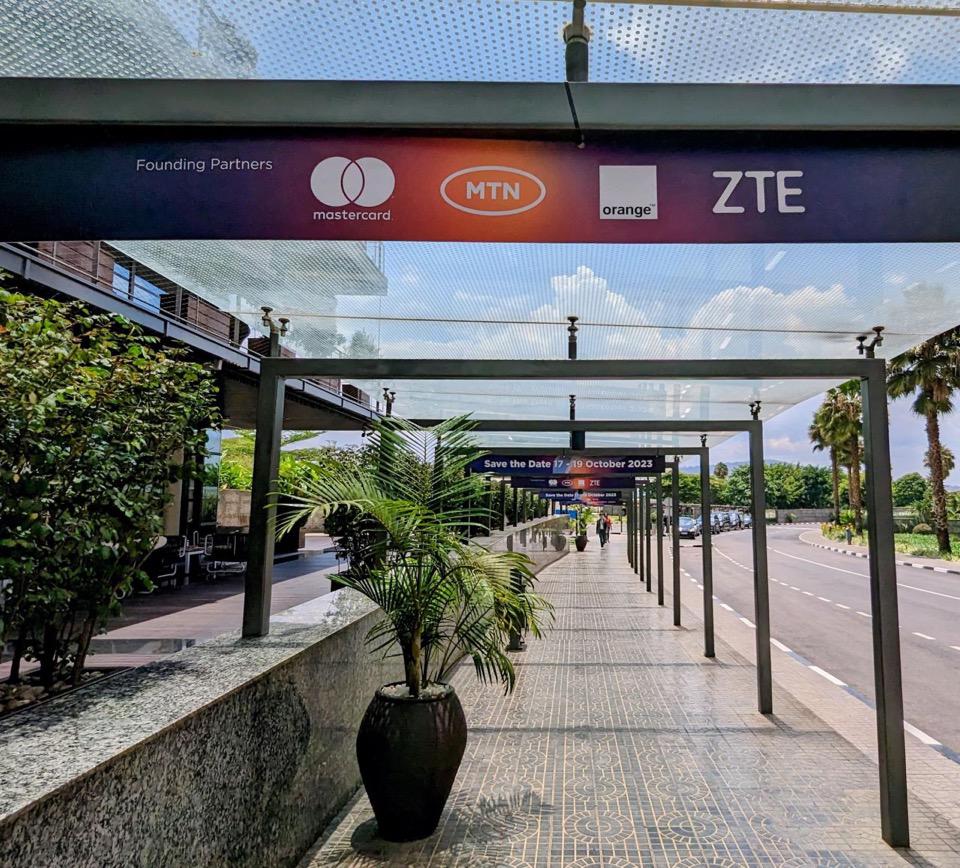
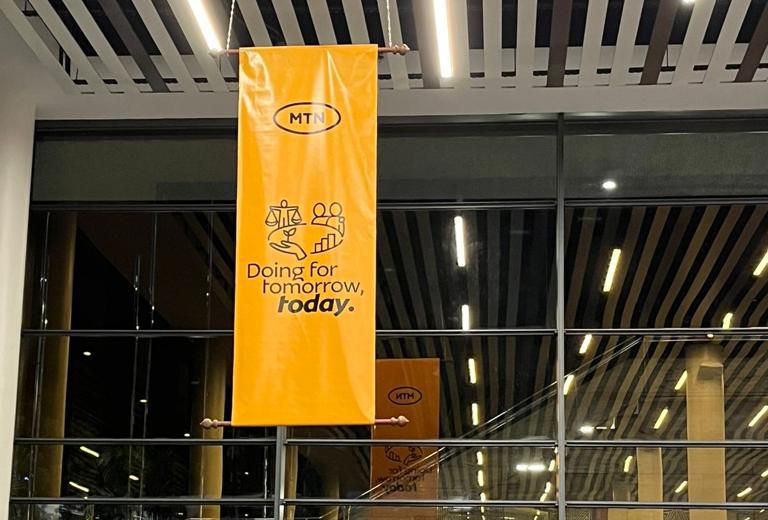
Recognising the need to engage and collaborate to achieve the effective, rapid and comprehensive digital transformation of Africa, MTN Group is a key participant and founding partner of Mobile World Congress (MWC) Africa, which this year is taking place on the continent for the first time.
Called ‘Connectivity Unleashed’, MWC Africa starts in Kigali, Rwanda today and runs until Thursday 27 October. It brings together hundreds of delegates from across the globe, exploring themes such as ‘Leadership for Connectivity’, ‘One People, One Purpose’, ‘Accelerate Africa’ and ‘Fintech’.
“From using 5G to enable digital growth across industries to stepping into the metaverse, we are excited to be building partnerships to solve some of the continent’s many challenges. MWC is a great opportunity for MTN to collaborate with others who want to make the same impact,” says MTN Group President and CEO Ralph Mupita.
Among the topics on which MTN executives will be engaging are: ‘What does Metaverse mean for Africa?’; ‘Progressive policy to accelerate the digital agenda in Africa’; ‘Setting the mobile money agenda for the next generation’; ‘Beyond the smartphone – developing innovative 5G use-cases and applications for Africa’; and ‘Digital transformation to accelerate the African Continental Free Trade Agreement’.
Determined to play our part in building the digital skills that Africa needs for its digital transformation, MTN will launch the MTN Skills Academy on the sidelines of MWC Africa, aiming to develop people across the continent as producers, consumers and innovators of digital technologies. This is part of our work to build digital skills for digital jobs, through which we will upskill the continent’s most valuable asset – its people – to help close the jobs gap in a sustainable and measurable way. Investing in digital capabilities of citizens underpinned by both technological and human capacity offers the most robust approach for the future. This is aligned to MTN’s Ambition 2025 strategy: Leading digital solutions for Africa’s progress.
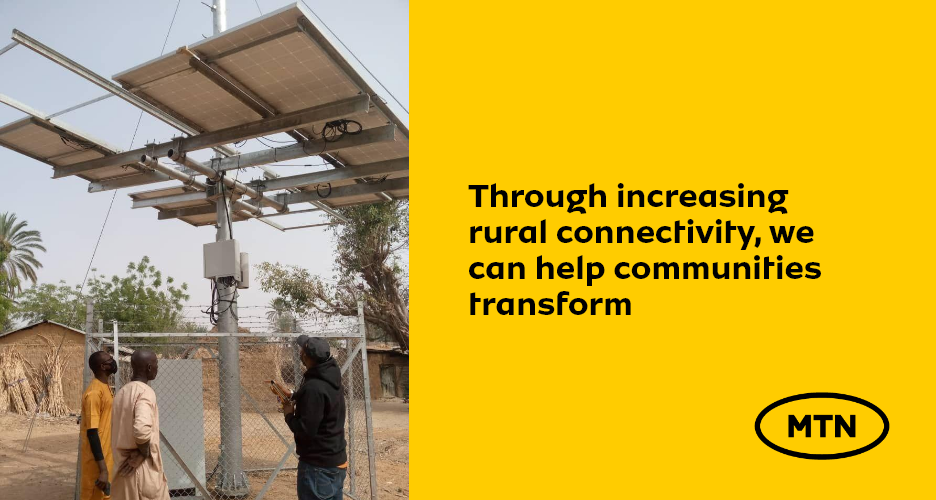
At MTN we recognise our incredible responsibility to ensure that no one is left behind in the profound evolution to a digital future. We know that access to affordable communication has the power to change lives and bridge inequalities and this is why we focus on increasing access – particularly in rural areas – and reducing the cost of our voice and data services.
The COVID-19 pandemic and the associated lockdowns clearly showed that internet affordability and accessibility are key enablers for communities, governments and businesses. Yet, several barriers to mobile internet adoption exist. We work to address these through our industry-renowned ‘CHASE’ framework, focusing on coverage, handsets, affordability, service bundling and education and ease of access.
Coverage is key, and in 2021, we rolled out 912 new rural towers (after rolling out 684 in 2020). This extended rural broadband coverage to a total of more than 23 million people across our markets, from 8.5 million in 2020. It brought MTN’s total rural broadband coverage to 83% and compares to our target of 95% by 2025.
To ensure that we meet this target, for 2022 we linked the incentives for executive remuneration to the progress we achieve on three ESG measures, including the expansion of rural broadband.
“Through our rural connectivity programme, 23 million people can now use their smartphones to access information and learning tools,” said Amith Maharaj, Executive for Network Design & Planning at MTN Group. “This programme is also accelerating the drive towards financial inclusion, where those previously considered as ‘unbanked’ are able to use the new infrastructure to make financial transactions.”
The impact has extended to entrepreneurs who can now run their businesses using the power of the internet.
Closing the coverage gap in rural areas would not be possible without the collaboration of our partners, who help us overcome challenges, most of which originate in our supply chain. In 2021, we increased the number of rollout partners as well as the kinds of partnership models in place.
We also use new technologies to find coverage solutions. OpenRAN (radio access network) enables us to cost-effectively develop and install 2G to 5G networks in previously unconnected areas.
Through our circular economy practices, we also reuse 3G equipment – often in rural areas – when it is swapped out for 5G equipment in those places where we have 5G spectrum. By doing this, we reduce the cost of these technologies while avoiding the emissions associated with the equipment’s manufacture, part of our work to reach Net Zero by 2040.
Equipment swaps take place within countries, or even between our different operating companies. Therefore, we need to collaborate closely with our partners to ensure that we adhere to trade rules and regulations around the sales of network equipment such as radio antennas. We also work with our partners to create an environment where circular economy initiatives become the norm.
MTN’s belief is that everyone deserves the benefits of a modern connected life. Through increasing rural connectivity, we can help communities transform. Access to information can reduce poverty by educating and upskilling the youth, creating jobs and improving lives. This fits with our Ambition 2025 strategic intent: Leading digital solutions for Africa’s progress.

People who are connected are ultimately empowered. It follows that the digital inclusion of traditionally marginalised groups – those in rural areas, as well as the elderly, women and the youth – is a key to broader socioeconomic development.
Driven to deliver on our strategic intent – Ambition 2025: Leading digital solutions for Africa’s progress – MTN has a clear plan to ensure that everyone in our markets can enjoy the benefits of a modern connected life. We call this ‘CHASE’. Rolling out broadband coverage – the ‘c’ in CHASE – is the first step.
“Providing a quality broadband network is essential, but not enough: there are various other interventions required to make sure that no-one is left behind,” says MTN Group Consumer Executive Enzo Scarcella. “People also need 3G-enabled handsets; affordable data; relevant service offerings; as well as education to equip them with the skills to make the most of all that the mobile internet has to offer.”
When all these elements are in place, adoption increases sharply – a fact corroborated by the findings of a study in Zambia, where MTN’s partner AMN is helping us extend broadband connectivity to more people in rural areas. The research looked at the impact of various interventions in six ‘ultra-rural’ villages compared to a control group of another six villages, all with 3G networks.
It found that by implementing the interventions – which are aligned to each of the elements of MTN’s CHASE framework – more new users were brought on to the internet and their data usage increased significantly, to three times the amount recorded in the control villages.
“Studies such as these encourage us to keep pursuing our CHASE framework,” says Scarcella, adding that the Group was building on the good progress made in 2021, the details of which include:
Coverage: To ensure sufficient coverage in rural areas, in 2021 we increased the number of rollout partners and introduced new partnership models, rolling out 912 rural sites. This expanded coverage to more than 23 million people in rural areas, up from 8.5 million in 2020. By the end of 2021, MTN’s total broadband coverage was 83% of the population. Through MTN Global Connect, we continued to build the infrastructure to connect African countries to each other and the rest of the world. We rolled out more than 15 000km of terrestrial fibre, bringing our total footprint to 100 000km.
Handsets: To increase the affordability of and customer access to data-enabled devices, in 2021 we placed 3.1 million 3G and 4G devices in the hands of our customers. We increased the number of vendors from whom we procure handsets and with whom we have agreements, ensuring that customers can access after-sales service. We also offered an MTN-approved device that is 20% cheaper than a comparable handset. By partnering with M-KOPA, we supported device financing to customers in Uganda and Ghana. In 2022, we are extending this to Nigeria and Zambia.
Affordability: To increase data service affordability, in 2021 we reduced our effective data tariff by 15.3%. To test affordability in line with United Nations and ECOWAS guidelines, we benchmarked MTN data pricing across operations. We found that 11 MTN markets have data prices that are within the UN’s recommended affordability range.
Service bundling: To create service offerings that are relevant, simple and meaningful to customers, in 2021 we provided different customer groups with different propositions, tailoring our offerings to include microbundles, social media bundles and XtraByte – a service that allows customers to borrow data when they run out. We also introduced YouTube streaming bundles for entry-level users.
Education and ease of access: To enhance digital literacy and the ease with which data can be accessed, in 2021 we trained 24 million people in the 12 markets in which we offer our ‘MTN Data-Smart’ digital literacy programme. This zero-rated programme improves people’s basic understanding of the mobile internet and applications.
“CHASE clearly defines the work that we need to do, and helps keep everyone at MTN focused,” says Scarcella, adding that extending digital and financial inclusion across the African continent also supports the group’s strategic priority to create shared value. “No one must get left behind, regardless of their location, age or socio-economic standing.”
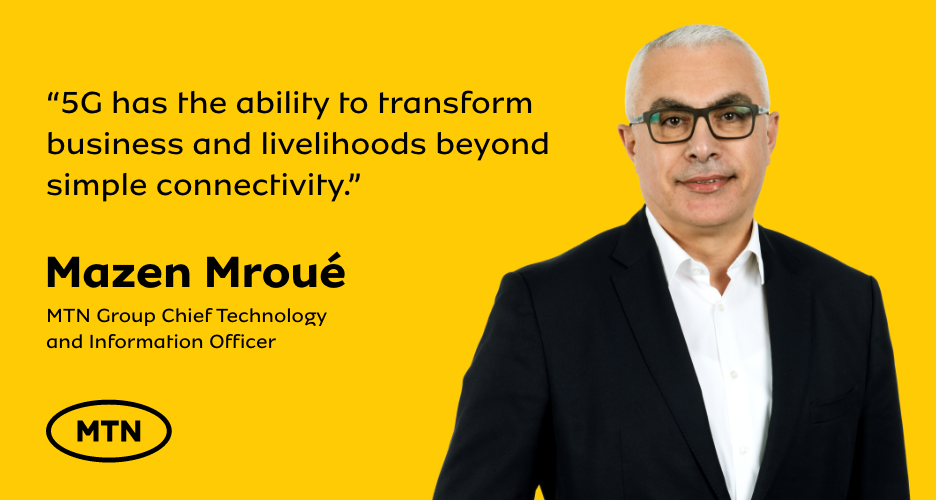
Mobile communications technology has been a crucial enabler of the information age, connecting individuals, businesses and governments, and facilitating improvements in daily life for people everywhere. Connectivity is the lifeline of modern societies and access to it is a digital human right.
Digital disruption is supporting economic development and the ambitions of the nation states in which MTN operates. According to a recent GSMA report, mid-band 5G will generate a $13 billion contribution to GDP in Sub-Saharan Africa by 2030. The rollout of 5G will help usher in the fourth industrial revolution and drive economic growth.
“5G is more than just an incremental upgrade from 4G. It delivers dramatically increased fibre-like broadband speeds compared to 4G, creating the potential for unlocking many new use cases for consumers and enterprises alike,” says Mazen Mroué, MTN Group Chief Information and Technology Officer.
“5G has the ability to transform business and livelihoods beyond simple connectivity. The key lies in the ultra-fast end-to-end communication capacity it enables,” he says, adding that it will enable many industries such as manufacturing, agriculture and mining to be more efficient.
“5G will also revolutionise the security and telematics industries as it allows a much larger number of devices to connect to telecoms networks at the same time.”
While developing countries have traditionally lagged developed ones in terms of readiness for and rollout of innovative technology, with the advent of 5G, both developed and developing countries are advancing simultaneously. Even markets where 4G is yet to mature are embracing 5G.
Modern base stations can switch dynamically between different technologies. Customers with capable handsets can experience the magic of 5G as soon as it becomes available, while customers with older handsets can continue to connect to older technologies on the same base station.
At MTN, we are driven to deliver on our purpose, which is to enable the benefits of a modern connected life to everyone. Back in 2018, we completed Africa’s first ultra-low latency 5G network indoor and outdoor trials. We did this in South Africa, where we launched commercial 5G services in June 2020.
MTN South Africa now has more than 1 000 5G sites across several spectrum bands, with plans to significantly scale this up since we procured high-demand spectrum in a landmark auction in March 2022.
MTN Nigeria also secured, via auction, spectrum for the deployment of 5G in 2022, and in December 2021, MTN Côte d’Ivoire launched 5G trials.
Authorities across Africa see the value of adopting 5G. In 2021, regulators in Uganda and Zambia conducted consultations on 5G spectrum, paving the way for 5G deployment. Markets such as eSwatini, Cameroon and Côte d’Ivoire also displayed movement in terms of discussions around securing 5G spectrum.
Since 2020, demand for broadband services has surged, with work from home during COVID-19-related lockdowns accelerating adoption everywhere. In 2020, MTN’s data traffic increased by a dramatic 110%. In 2021, it expanded by a further 58.3%.
Not wanting to leave anyone behind, MTN Group is ramping up its rollout of 5G sites. In 2021, across the Group, we rolled out 849 5G radio sites. Over the medium term, we aim to reach 5G population coverage of 10%-30%.
But to provide faster speeds and capacity and contribute to the realisation of the African digital transformation agenda, we need adequate, suitable, affordable and harmonised spectrum to fuel our networks.
To advance this cause, we advocate for recognition and accommodation in terms of our spectrum requirements and to ensure Africa’s recognition in the 5G space at international forums, including the GSMA’s Strategic Spectrum Management Group, Future Spectrum Group and Future of Spectrum Access.
As our Group President and CEO Ralph Mupita has said, “Africa will surprise on 5G.” The continent stands at the cusp of 5G mass markets deployments. Never has a technology been so eagerly anticipated.
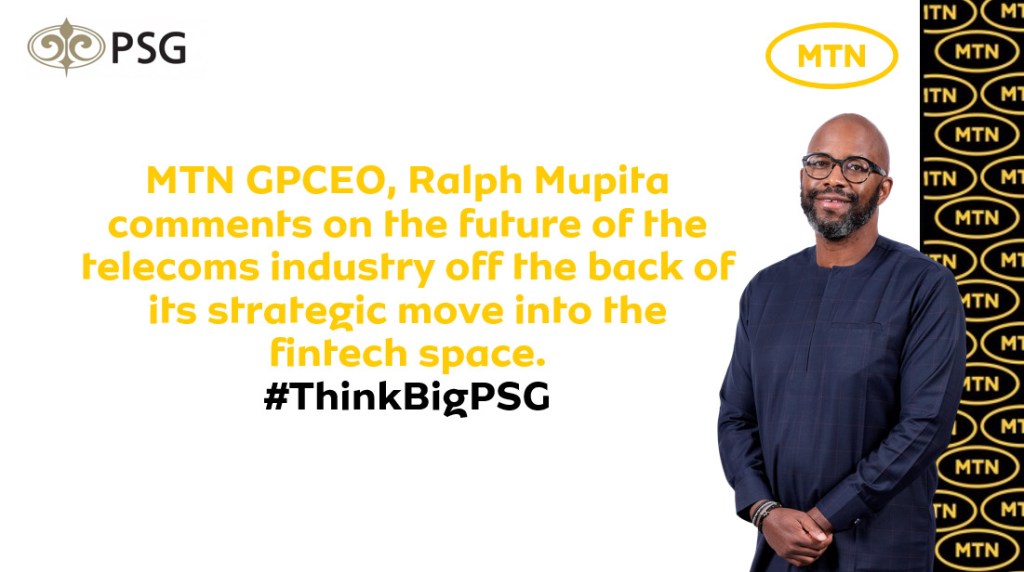
‘The days of having a 4-6 player telecoms market on the continent are coming to a swift end.’
26 April 2022: Late March saw leading African telecommunications network provider, MTN overtaking rival, M-Pesa to become the continent’s largest mobile payments provider. In addition, the MTN Group is in the process of spinning off its fintech division separately andwill be looking to bring in strategic investors into the group fintech business to bolster its expansion in the fintech space. This strategic shift of focus is indicative of the Group’s broader objective to consolidate its business model and move decisively towards solidifying its position as a truly pan-African company. As a brand, its eye is firmly set on existing and new African horizons, in what can be thought of as a “third chapter” in MTN’s business evolution.
This was the perspective shared by Ralph Mupita, President and CEO of the MTN Group, who engaged in a conversation about the future of the telecommunications industry with award-winning journalist, Bruce Whitfield. The discussion formed part of a webinar entitled Think Big– a digital series that gleans insights from some of the country’s most informed thought leaders and prominent public figures. The Think Big series is an initiative of leading financial services group, PSG, and is geared towards providing a freely accessible South African platform for debating and discussing some of the country’s most pressing issues.
Furthering his point on MTN’s single-minded focus on the African continent, Mupita confirmed that the Group has dialed back its interests in the Middle East in order to simplify the Group’s operations and allocate its human and capital resources in a way that leverages the opportunities that exist on the continent and produces profitable returns in the long-term.
With a background in the financial services sector, Mupita has played an instrumental role in the brand’s expansion into mobile money and insurance. And while the move into this new space is backed by a strong business case, for Mupita, the bigger picture is that “we cannot leave people behind. We are very determined to deepen digital and financial inclusion across Africa. Africa has an opportunity to leap-frog economically by leveraging digital infrastructure and services to drive social-economic growth. We have seen the positive impact that mobile money has made in countries like Ghana and Uganda and we believe that by expanding into this area, we can create a win-win environment for business and for broader African society. We see a similar opportunity in a market like Nigeria, now that we have a Payments Services Banking licence, where we will commence operations soon.”
Commenting on these developments, Mupita said that, “MTN is entering a ‘third chapter,’ of growth. In its formative years post-democracy, the Group established itself as a voice-centered network and expanded into new markets such as Rwanda and Uganda. In its ‘second chapter,’ around 2008, it transitioned into the data services space, driven by the emergence of smartphones. Now, as the Group enters a new stage of development, where ecosystems and platforms will drive growth, MTN is steadfast in its plans to make inroads into the financial services industry towards the ultimate goal of promoting and driving financial inclusivity on the continent.
Reflecting on the Group’s journey over the past two years, Whitfield suggested that although the pandemic bore catastrophic consequences for South Africans (and Africans at large), its outbreak was fortuitous in the sense that digital technology was well-positioned to serve as an enabler for change.
Mupita agreed with this sentiment, commenting that at the time of the Covid-19 outbreak, MTN was equipped with the capital and infrastructural resources it needed to weather the storm and deal with the unprecedented surge in network traffic. For the Group, the past two years has been about building and maintaining a telecoms environment that could help Africans to sustain a semblance of normality, while also ensuring that the Group’s financial position remained strong.
Post-pandemic, Mupita has become a proponent of having mature conversations with stakeholders and other industry players about the future of telecoms on the continent. Referencing the American current state of affairs as a model for what lies ahead for Africa, Mupita made the bold statement that “consolidation is inevitable.” In his opinion, what this means is that the days of having a 4 to 6 player telecoms market on the continent are coming to a swift end.
As he elaborates: “Having a market that is saturated by a number of players is not sustainable. There is simply not a big enough profit pool to meet the return and other financial objectives of a number of industry players. Within the next few years, we will see a sector dominated by 2 to 3 major players who have the capabilities and capacity to rally massive amounts of capital investment locally and abroad, to sustain the industry’s expansion. MTN has every intention of being one of the scale operators in all its markets.”
On the emergence of 5G technology, Mupita commented that the ‘Elon Musk dream’ is well within our reach. Essentially, 5G entails machine-to-machine communication, and examples of this are already in existence in the mining sector, where MTN has played a key role with partners in the development of driverless vehicles in open-cast mining pits in South Africa.
As he suggests, “driverless vehicles for consumers may not be such a far-off reality. We’re seeing use cases developing for 5G for mining, ports, manufacturing and other industrial applications around the continent. As we continue to invest in the development of African infrastructure for African society, we see MTN making a significant contribution to these kinds of new digital technologies. Africa will surprise on 5G.”
From the discussion it seems clear that there are many growth opportunities available on the African continent. With a long runway ahead of it, these developments re-emphasise the importance of sound financial advice and effective wealth management for investors who want to position themselves strategically to drive growth on the continent and ultimately, reap the benefits.
To watch the webinar, please click here
A quick text to a colleague, an important email from a client, a video call with people across the world – these tasks no longer require office hours. Mobile technology has altered the way we work forever. While we marvel at (or bemoan) our extended workdays, farmers have been doing it for centuries. Neither crops nor livestock are concerned about the numbers on a clock or the public holidays on a calendar. The farmer’s day does not end when the sun sets; because when the sun sets the farmer has to worry about whether his or her livestock is safe and secure, or whether that cow might give birth at midnight, among a range of other concerns. In an innovative world, this is where technology comes in to ease and optimize the workload.
Innovation for farmers comes in the form of cloud-based technology and the Internet of Things. This pillar of Industry 4.0 has led to the creation of smart collars for livestock.
When an animal wears a smart collar, the farmer can track its location and health in real-time.
Rather than wondering whether a predator or a thief is going to get away with an animal in the middle of the night, smart collars minimise the guesswork. If, for example, a predator enters the territory of farm animals, the heart rate of the farm animal will increase and the farmer will be alerted about the distress immediately. Naturally, alerts from the smart collar are sent straight to the farmer’s phone in the event of a potential incident. The ability to prevent rather than react to incidents results in fewer animals lost, and more money saved in the long run.
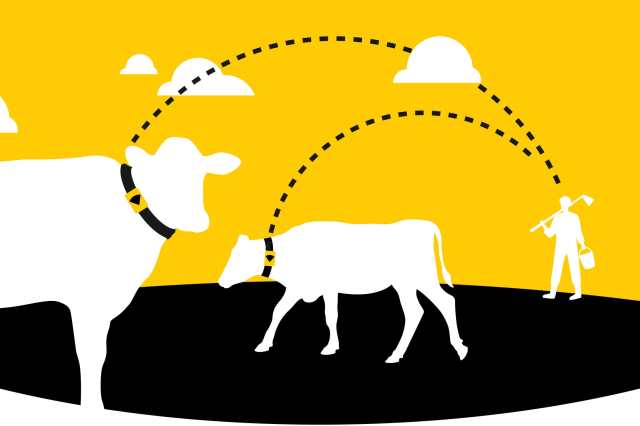
In countries like South Africa, smart collars are helping to prevent the theft of livestock as well as the ability to identify an animal if it wanders over to a neighbouring farm. The combination of a smart collar, cloud-based management and a user-friendly digital interface also enables farmers to gather data and identify behaviour patterns, which lead to more informed decisions about managing livestock.
Similarly, in Nigeria we launched an animal identification management system to monitor cattle location, send emergency alerts in cases of distress and create grazing areas through solar powered GPS geo-fences.
Smart collars have made an impact on Africa’s rhino poaching problem as well. MTN partnered with IBM, a university in the Netherlands called Wageningen, and a game reserve called Welgevonden to create and deploy smart collars for animals in danger of being poached. Whenever the behaviour of an animal in the game reserve changes (as they do when hunters approach), game rangers receive alerts and are able to act quickly.
With more than 1000 rural sites installed by MTN in Africa, more livestock farmers have the ability to use smart collar solutions. When connectivity becomes the enabler to solve age-old problems, technology becomes so much more valuable than answering a late night email.
If you enjoyed this article, read about how crop farmers are using IoT solutions here.